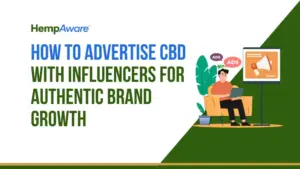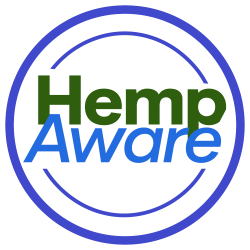Appreciating the FDA’s Watchful Eye Over CBD Advertising
Although federal control isn’t often front-page news, in the case of CBD the Food and Drug Administration has most definitely taken the stage. Under federal law, hemp-derived CBD was approved by the 2018 Farm Bill. Think wild west, but with topicals and tinctures instead of cowboys—regulation caught up fast. While CBD shot to prominence and permeated everything from neighborhood bodegas to wellness stores, many manufacturers rushed into dangerous terrain and made audacious claims about health benefits and miraculous healings. Enter this cbd advertising compliance guide, where we dissect what’s allowed, what isn’t, and how to talk to your audience without drawing a letter from the FDA.

The FDA set a sandline boundary. The FDA has approved one CBD product, Epidiolex, as a prescription drug specifically for some forms of epilepsy. Everything else finds a special FDA gray area. Foods and dietary supplements—gummies, lotions, flavored coffee—are not officially approved. Still, CBD companies continue to grow steadily. The difficulty is marketing these goods without running afoul of federal wires.
Why Do the FDA Finds Such Concern Regarding CBD Claims?
Public confidence and consumer safety ultimately rule everything. Americans believe that what labels say is exactly what is inside the container. When trust is threatened, the FDA intervenes. In their haste to distinguish out, CBD businesses have occasionally used dubious health claims without regard for accuracy. These are the claims that send regulatory antenna straight up: promises to reduce anxiety, prevent cancer, correct arthritis, improve heart health.
Before one can say “wellness revolution,” health-related claims can move a CBD lotion or tincture into the “drug” category. And without FDA scrutiny, peer-reviewed studies, and clinical trials, such assertions are verboten. The FDA gives any assertion a product can diagnose, treat, cure, or prevent a disease complete attention.
Guidelines of the Game: FDA Accepted Rules (and Not Accepted Rules)
It might feel uncomfortable to be walking the tightrope between good marketing and federal compliance. The FDA forbids disease claims but lets businesses talk about overall advantages, consumer experiences, and scientific data on CBD. Linguistically, things count. Little variations distinguish legal descriptions from infractions of law.
You are free to call attention to flavors, ingredients, source, and personal experiences. Steer clear of comments, though, that dance anything close to medical advice. Saying a salve “soothes aching joints” is enticing, but the FDA’s radar recognizes it as a possible treatment claim. Saying your balm is “refreshing after a workout” is a lot more sensible. Let real consumers describe how they value your items in their own words; but, review those testimonials; avoid letting them stray into medical advice land.

The Puzzle Piece from Social Media
Digital marketing adds still another twist to the proceedings. Facebook ad campaigns and Instagram influencers can send CBD brands skyward, or into legal hotlines. FDA guidelines apply for digital channels; states have their own patchwork of regulations. Some social media sites, including Google and Facebook, either exclude or limit CBD advertising completely.
Here, natural progress counts. Content centered on education, infographics, and blog entries—like the one you are reading—helps your audience develop a relationship while dodging legal obstacles. Since platform rules and federal legislation are susceptible to change at the drop of a hat, always make sure any sponsored promotions comply both. Not bad is having a legal adviser or compliance officer on quick dial.
Writing CBD Ad Copy Without Violating Laws
Keep to the Facts. The marketing gold rush for CBD has seen some imaginative narrative. Still, following facts—clear, defendable, and in science—helps keep companies out of trouble. Though “CBD relieves chronic pain” is stickier than “Anecdotal evidence suggests CBD oil feels relaxing for many people.” Individuals value integrity. It also reveals your awareness of the terrain of regulations. Keep to outlining what CBD is, where it comes from, product specifics, usage instructions, and what distinguishes your offering.
Steer Clear of Medical and Health Claims—Full Stop
Though there is a lot of anecdotal evidence, never promise alleviation, prevention, or cures for any ailment. Strictly forbid stating that products may treat, prevent, or cure diseases. Unchecked, even offhand remarks or words used in testimonies might cross the line. FDA warning letters have mentioned everything from “CBD treats anxiety” to “may help prevent cancer,” words like these urge action.
Turn to Openness
Few things foster confidence more quickly than easily available, unambiguous knowledge. Show; not tell. Discuss manufacturing techniques, product procurement, and outside laboratory testing. Share freely post certificates of analysis and talk about what you find in the bottle. Tell where your hemp originates from, the contents confirmed by testing, and what consumers may expect, sensation- or flavor-wise, instead of guaranteeing a life free of worry.
Teach; Avoid Prescribing
See your advertising content as a teacher rather than a doctor. If you discuss CBD, emphasize broad wellness education. Subjects like the endocannabinoid system, the difference between full-spectrum and isolate, or historical hemp use can captivate an audience without breaking laws.
The Name of the Game is Moderation
Witty content makes people turn around, while over-the-top assertions grab attention for the wrong reasons. Using lines like “CBD supports a balanced lifestyle” or “may promote feelings of calm” avoids prescribing. Turn absolute language into suggestive phrase. “May help relaxation” is worlds safer than “eliminates anxiety.”
The Legal Labyrinth Beyond the Food and Drug Administration
Though it rules the debate, the FDA is not the only referee on this field of play. Also monitoring marketing and advertising, the Federal Trade Commission (FTC) seeks out misleading behavior. Their guidelines on “truth in advertising” provide still another level: everything you say has to be true and supported. FDA, FTC, and state rules taken together produce a patchwork of limitations and rights.

Some states, for instance, forbid adding CBD to food products, while others control labeling and child-resistant packaging. Tell us where you sell and ship. State laws can also be broken even by mailed goods. There is no shortcut; for any ethical CBD firm, maintaining current is only part of the work.
Building a Sound Internal Review System
Think about this: have a review system in place before any copy starts running. Get many eyes—marketing, legal, and occasionally even independent consultants—to approve everything from banner advertising to blog entries. With legal expenses and possible product recalls, mistakes in this sector travel quickly and can be costly.




